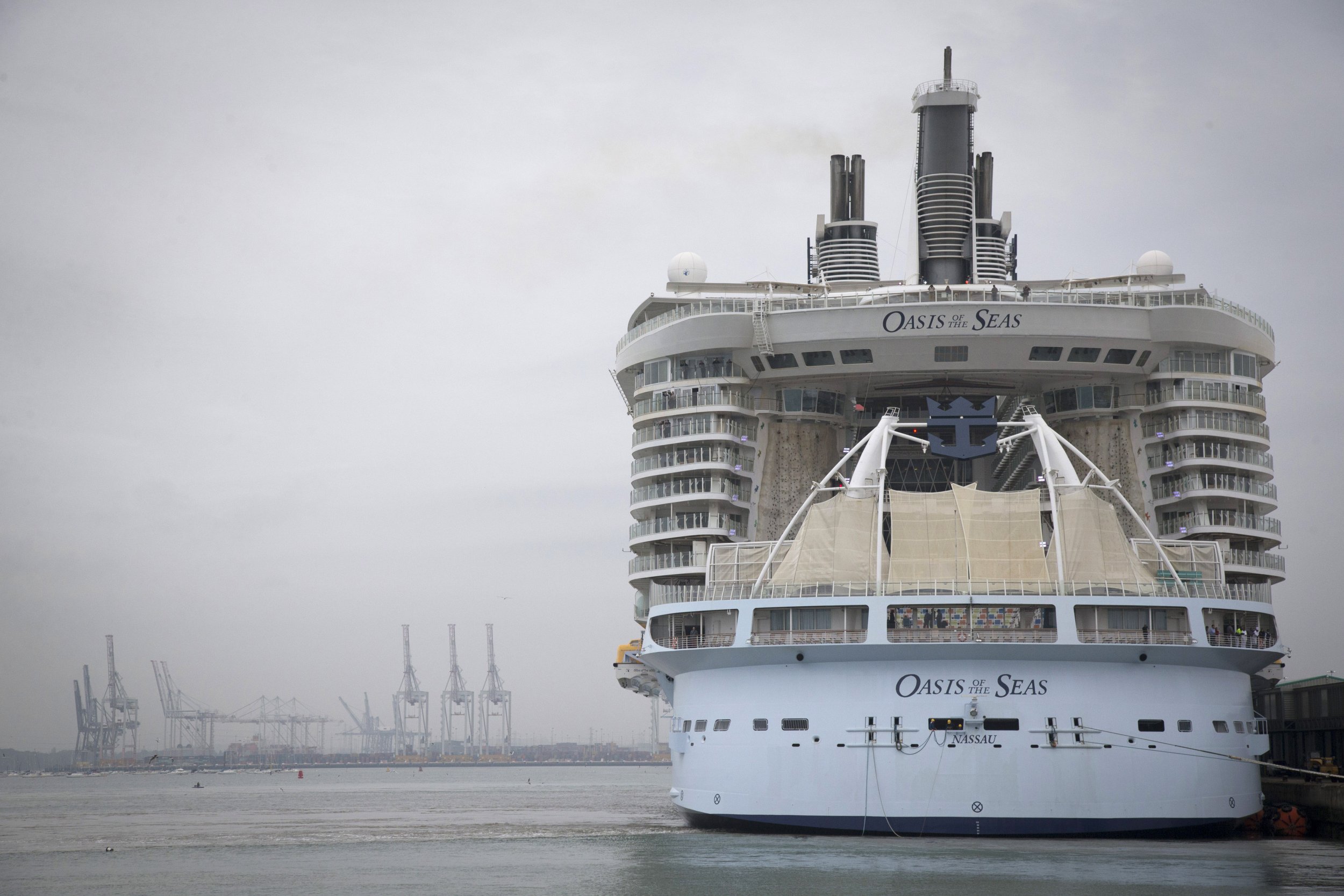Table Of Content

Respiratory illnesses are the most common medical complaint on cruise ships. During the pretravel visit, evaluate whether vaccines or boosters (e.g., COVID-19, influenza) are needed and emphasize the importance of practicing good respiratory hygiene and cough etiquette while onboard. As with GI illnesses, cruise ship passengers should report respiratory illness to the medical center promptly and follow isolation recommendations as instructed.
Other Vaccine-Preventable Diseases
We recommend these Clorox Healthcare Hydrogen Peroxide Wipes for taking with you on your ship (Link contains affiliate link, which costs you nothing extra to use!). The ship project started in March 1999 with the vessel's acquisition through a donation from Balcraig Foundation (UK), which purchased the boat for US$6,5 million. Infirmary's equipment and med supplies provide only emergency response and basic treatments in order to stabilize the passenger until transferred ashore. Attacking a hospital ship is considered a war crime, but enemy forces have the right to board them for inspections. So keep your hands clean, keep your mind clear, always hope for the best. Bad, if meant to happen, will happen anyway, and nothing can change it.
Outbreak Control
The virus also spreads fecally, so you can catch it into the onboard laundry, or while changing diapers, etc. However, many passengers likely can blame a sick crewmember for the virus. According to a survey based on 170 inspection records on ships that docked in Florida ports in 2012, on 59 cruises violations of the required illness reporting laws were reported. A total of 130 crew had gotten sick on those voyages and didn't report their illness in the required time period. Historically, influenza has been among the most often reported VPDs occurring on cruise ships.
Norovirus
If exposed passengers are allowed to board, see information below regarding recommendations for management onboard. Cruise ship operators should consider denying boarding for passengers who test positive for infectious viral etiologies during pre-embarkation screening, as well as those who tested positive for COVID-19 within 10 days before embarkation. If boarding is permitted, see guidance for isolation and other measures provided below. The CDC advises frequent hand washing with soap and warm water for at least 20 seconds to prevent the spread of norovirus. Key times for handwashing include after using the restroom or changing diapers, and before eating, preparing food, or handling medicine.

Cruise ships are perhaps best known for amenities like buffets and swimming pools, but their medical facilities also have the capability to treat a wide range of illnesses and injuries, from common colds to heart attacks. Doctors on cruise ships are independent contractors and set their own rates. Tests, medications and the use of equipment, like X-rays, will be charged separately. However, it’s wise to make a cruise packing list and travel with the medications or remedies that you know work for you, like Dramamine, Gravol or a motion sickness patch. Many people rely on sea sickness bracelets that activate a pressure point on the wrist. If medical staff are concerned about your condition, they may advise—and even require—you to seek the advice of specialists on shore, says William Spangler, MD, global medical director with AIG Travel.
139 passengers, crew sickened during gastrointestinal illness outbreak on Queen Victoria cruise: CDC - ABC News
139 passengers, crew sickened during gastrointestinal illness outbreak on Queen Victoria cruise: CDC.
Posted: Thu, 01 Feb 2024 08:00:00 GMT [source]
Because passengers and crew originate from all regions of the globe, shipboard outbreaks of influenza A and B can occur year-round, with exposure to strains circulating in different parts of the world (see Sec. 5, Part 2, Ch. 12, Influenza). Thus, anyone planning a cruise should receive the current seasonal influenza vaccine ≥2 weeks before travel if vaccine is available and no contraindications exist. For people at high risk for influenza complications, health care providers should discuss chemoprophylaxis and how and when to initiate antiviral treatment. Vessel captains may request assistance from CDC to evaluate or control ARI outbreaks as needed. If the ship will not be arriving imminently at a U.S. seaport, CDC maritime staff will provide guidance to cruise ship officials regarding management and isolation of infected people and recommendations for other passengers and crew members.
Illness outbreaks on cruise ships (annual statistics)
“It’s really up to the physician as to how comfortable they feel with keeping you aboard, versus disembarking you to make your way home or to a nearby facility where you can be definitively cared for,” says Dr. Spangler. The most common symptoms of norovirus are vomiting, nausea, diarrhea and abdominal pain, Dr. Albert Ko, infectious disease physician and professor of public health, epidemiology and medicine at Yale School of Public Health, tells TODAY.com. Travelers with ARI who board, as well as those who become sick with ARI onboard, should be identified and tested as soon as possible to minimize transmission of respiratory viruses. The table below provides disease-specific recommendations for persons on board with COVID-19, influenza, or RSV and those exposed (i.e., contacts). Though intestinal illness can spread quickly on cruise ships, outbreaks are infrequent, according to the C.D.C. Illnesses are a natural part of any group population, even on a cruise ship.

Another popular cruise line, Royal Caribbean International, has reported four outbreaks since January. Healthcare providers should understand the advantages and limitations of rapid diagnostic tests, and proper interpretation of negative results of any antigen diagnostic tests. Rapid antigen diagnostic tests have a lower sensitivity compared with RT-PCR, and false negative results can occur frequently. For passengers with health concerns, medical care on cruise ships is a vital part of their travel planning.
There are more than 21 million US cases reported annually, of which 1 mill related to kids. Outbreaks happen mostly during winter months and mainly in more crowded places with close quarters. Among those are schools, hospitals, nursing homes, dormitories, prisons, big resorts, bigger passenger ships (including cruise ferries).
Each cruise line sets its own policies regarding vaccinations for its crew; some have limited or no requirements. Thus, all passengers should be up to date with routine vaccinations before travel, as well as any required or recommended vaccinations specific for their destinations. People of childbearing age should have documented immunity to measles, rubella, and varicella (either by vaccination or titer) before cruise ship travel.
You’ll then need to submit receipts to your insurance company to determine what will be reimbursed. The ship’s medical center will likely give you the same advice as you would get at home—drink lots of (nonalcoholic) fluids and rest. If the doctor suspects your symptoms are caused by bacteria rather than a virus, they may prescribe an antibiotic.
If you do get sick, it isn’t the fault of the cruise ship or crew, as there are many health and sanitation protocols in place to keep cruise ships as clean and healthy as possible. On a cruise ship, however, outbreaks are much more visible and tend to make headlines. This gives the impression that cruise ships are more susceptible to disease outbreaks, but this is not true.
The cruise terminal and the near area were thoroughly cleaned and sanitized. AARP is a nonprofit, nonpartisan organization that empowers people to choose how they live as they age.

No comments:
Post a Comment